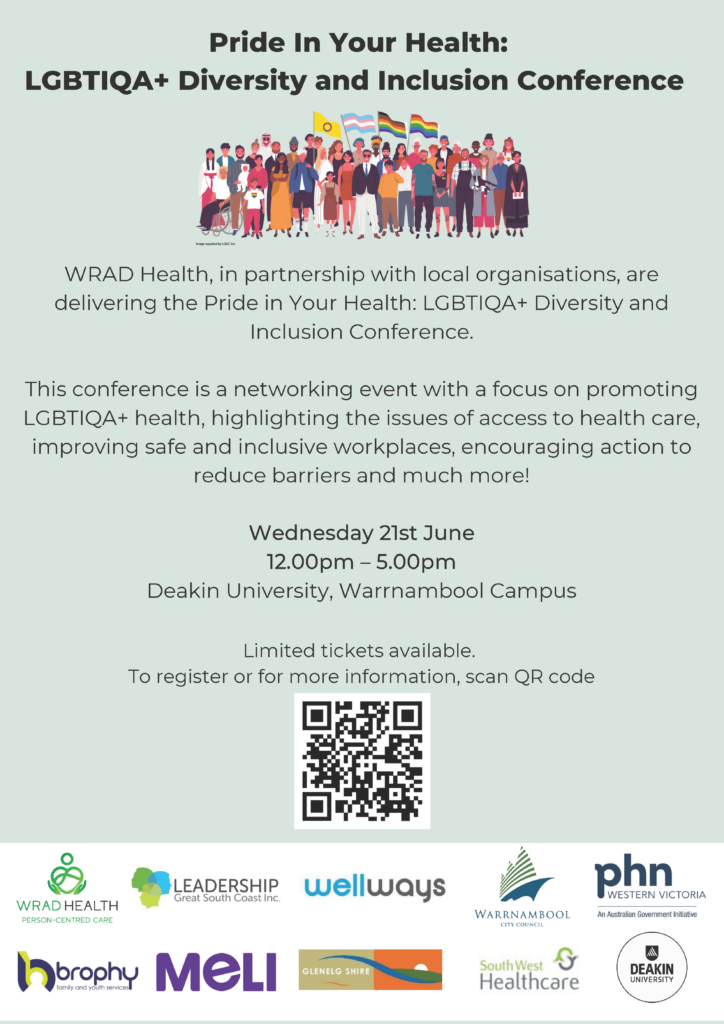


South West Healthcare is proud to be part of the Pride in Your Health Conference, coming up on Wednesday 21 June and encourages staff, volunteers and community to attend so we can all work together to provide safer, more inclusive care for the LGBTIQA+ community.
You can find out more and purchase your tickets here

We have some new changes being implemented at our health service from July onwards. The Department of Health has changed the way health services report about some of your key information. Now every person who is registered as a patient at South West Healthcare will be asked the following questions:
This information will be stored on your electronic medical record and visible to your care team. When you leave hospital, this information will also be included in a discharge summary to your GP.
If you don’t wish to share this information or you don’t want it recorded, that is ok, you can choose “prefer not to answer”. If you feel comfortable telling a staff member later in your hospital stay, you can do so at any time.
What is the difference between sex at birth and gender?
SEX refers to the category of male or female, assigned to a person at birth based on biological and anatomical characteristics.
However, human bodies are diverse and not all bodies conform to these categories. Intersex people have variations in their anatomies, hormones or chromosomes that don’t fit medical and social norms for female and male bodies. A person who is intersex may have been assigned male, female, intersex or as being of indeterminate sex at birth.
GENDER refers to a person’s internal sense of being a boy/man, girl/woman, both or neither.
For many people, their gender identity aligns with the sex they were assigned at birth. These people are cisgender.
Transgender and gender diverse describe people whose gender identity does not align with the sex they were assigned at birth and includes identities such as; non-binary people, trans women, trans men, genderqueer, gender fluid and more.
Intersex people may identify with the sex they were assigned at birth (cisgender), or as trans or gender diverse.
Why do we ask about both sex at birth and gender?
Pronouns – what are they? Why are they important?
We all use pronouns every day to refer to people that we are talking about instead of their names, for example he/him, she/her.
She and he are gendered pronouns. She is generally used for female-identifying people. Similarly he is generally used by male-identifying people.
Gender neutral pronouns are pronouns that don’t imply ‘male’ or ‘female’. They are generally used by gender diverse and non-binary identifying people. For example: they/them, xe/xem.
However, it is important to remember that there are no rules when it comes to pronouns and you cannot know what pronouns someone uses just by their name, body, clothes or any other visible factor.
The only way we can know what pronouns someone uses is to ask;
“What pronouns do you use?” and then to use those pronouns.
South West Healthcare is committed to providing safe and inclusive care for our LGBTIQA+ communities and these new changes will assist us to do so.
If you have feedback about these changes, or your experiences at South West Healthcare, you are welcome to provide it through our feedback channels